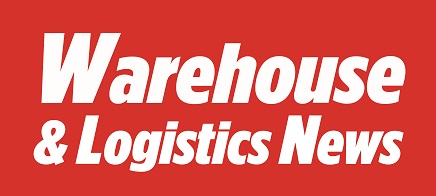Oakland International, a leading specialist in distress load management, is calling for immediate industry and government action to address the crisis of distress loads and clandestine infiltration of commercial vehicles, a threat that endangers food safety, driver welfare, and the integrity of the UK’s supply chain.

Launching their comprehensive new report on Distress Loads and Clandestine Infiltration of Commercial Vehicles, developed in partnership with market analysis company Analytiqa, Oakland International exposes the urgent need for coordinated action, particularly across the food supply chain. The report draws on extensive market research and operational data and highlights a lack of clarity and understanding of ‘best practice’ when it comes to the responsibility, or accountability, for distress load stock.
Contributions from the RHA and BIFA highlight the need for broad industry collaboration to address UK supply chain challenges. The report also recognises the vital roles of FareShare and City Harvest London in food redistribution and tackling food insecurity.
RHA Senior Public Affairs Lead Ashton Cull commented: “The Independent Chief Inspector of Borders and Immigration (ICIBI) said in their recent report “The threat of clandestine entry at the juxtaposed ports remains high and is unrelenting”, findings echoed in this report. That means everyone based at or using these ports has their part to play to keep the border secure.
“However, failings within Border Force and the Clandestine Entrant Civil Penalty Scheme identified by the ICIBI mean that all the responsibility and liability is being unfairly shifted onto drivers and businesses who have taken all possible steps to secure their vehicles from clandestine entrants. That’s why we recently wrote to the Home Secretary to call for reform of this scheme.
“We repeat our call for further and urgent investment in training and technology at our borders to help keep loads secure. We want to see a fair system in place that protects drivers, goods and businesses as well as our borders. We look forward to seeing greater urgency on this issue.”
Oakland International Co-Founder Dean Attwell said: “The rise in clandestine infiltration is not just a statistic, it’s a ticking time bomb for food safety, driver security, and public health.
“Every compromised load puts the public at risk and costs the industry millions per year. We need urgent, coordinated action across the supply chain to implement robust security protocols, improve traceability, and ensure accountability at every stage.”
Figures from the report show a sharp monthly rise in clandestine infiltration, where migrants enter lorry trailers, threatening food safety and supply chain integrity. This results in major financial and operational losses each year, as contaminated loads are discarded.
Report highlights include:
•In the BIFA report for 2021/2022 there were over 3,800 incidents reported of clandestine infiltration.
•Number of incidents in the first nine months of 2024 higher than the equivalent periods of 2022 and 2023, up 12.8% and 60.6% respectively.
•In 2023, on average, three people detected per instance, the highest number since 2020.
•The actual number of incidents and people detected likely to be significantly higher, Border Force do not record the number of vehicles checked requiring no further action, so it’s not possible to track how many vehicle checks undertaken or what share of vehicles these account for.
•Stock value lost due to an infiltrated load can be in the low £’000s to several tens of £’000s. Consequential loss of revenue can be many multiples of this.
•“There are a range of claim sizes. General foodstuffs could be £20k – £30k per trailer, chocolate brands could be £70-£80k per trailer,” Managing Director – Loss Prevention UK Insurance Industry.
Oakland International’s Distress Load Management (DLM) service has significantly expanded its capacity to address a growing number of clandestine infiltration cases, marking a substantial increase compared to previous years. However, as highlighted in recent reports, the actual scale of the issue is likely much greater, since many incidents remain unreported or are not formally managed.
Added Dean: “We are witnessing a perfect storm, desperate individuals risking their lives to cross borders, criminals exploiting vulnerabilities in vehicle security, and a food industry struggling to maintain safety and compliance.
“The current system is failing to protect both people and products. The Food Standards Agency must step up, and the entire industry must unite to close security gaps and safeguard our food supply.”
Contaminated loads pose risks beyond financial loss, threatening public health and causing significant food waste. Oakland’s BRCGS-accredited, EHO-approved Distress Load Management (DLM) service typically recovers over 85% of product, while non-conforming stock is securely quarantined and disposed of according to strict procedures.
The report calls on all stakeholders, hauliers, retailers, regulators, and policymakers, to prioritise investment in security measures, driver training, and rapid response protocols. Oakland International stands ready to support the sector with its proven expertise in distress load management and urges greater transparency and accountability to restore confidence in the UK’s vital supply chain.
Oakland International Ltd
t: 01527 357 424
e: DLM@oakland-international.com
w: www.oakland-international.com





Comments are closed.